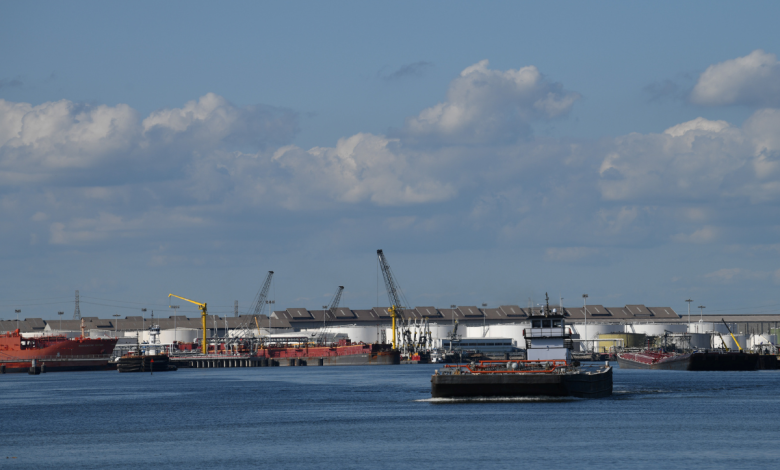Top Global Ports May Be Unusable by 2050 Without Climate Action

A study released on Friday indicated that efforts to speed up the maritime industry’s decarbonization and introduce new technology are crucial because some of the world’s largest ports may become inaccessible by 2050 due to operations being impacted by rising sea levels.
Ports all over the world are already being affected by weather-related disruptions. Among them is a drought that is impeding Panama Canal operations, a major waterway.
Future scenarios were examined in the Global Maritime Trends 2050 report, which was commissioned by eminent shipping services provider Lloyd’s Register and its independent charity arm Lloyd’s Register Foundation.
According to a Lloyd’s Register (LR) spokesperson, of the 3,800 ports in the world, a third are situated in a tropical region vulnerable to the strongest effects of climate change.
Even a rise in sea levels of just 40 cm could render inaccessible by 2050 some of the largest ports in the world, including Shanghai, Houston, and Lazaro Cardenas (in Mexico).
According to the report, Rotterdam and other important ports are already under pressure.
According to the study, which was produced by the think tank Economist Impact, nations will need to make investments to boost the productivity and resilience of their ports and logistics infrastructure in order to keep up with the rising demand for imports and consumption.
According to the LR spokesperson, ports that are particularly vulnerable to sea level rise, like Shanghai, could install flood defence systems akin to the Maeslant Barrier in Holland and the Thames Barrier in London.
The spokesperson added that this would eliminate the need to continually raise current floodwalls every ten years, which is a temporary and expensive fix.
Almost 3% of the world’s CO2 emissions come from shipping.
The LR spokesperson stated that the industry is actively reducing its emissions by consuming less fossil fuel, but added that it is still fragmented.
Around five ships are owned by the typical shipowner. As a result, not all players are adept at gathering information. A refusal to share data is another possibility. Access to reliable and pertinent datasets is necessary for forecasting.
Also Read: Empowering the Renewable Revolution: Five Transformative Moves
Prior to the start of London International Shipping Week on September 11, the report was released.



